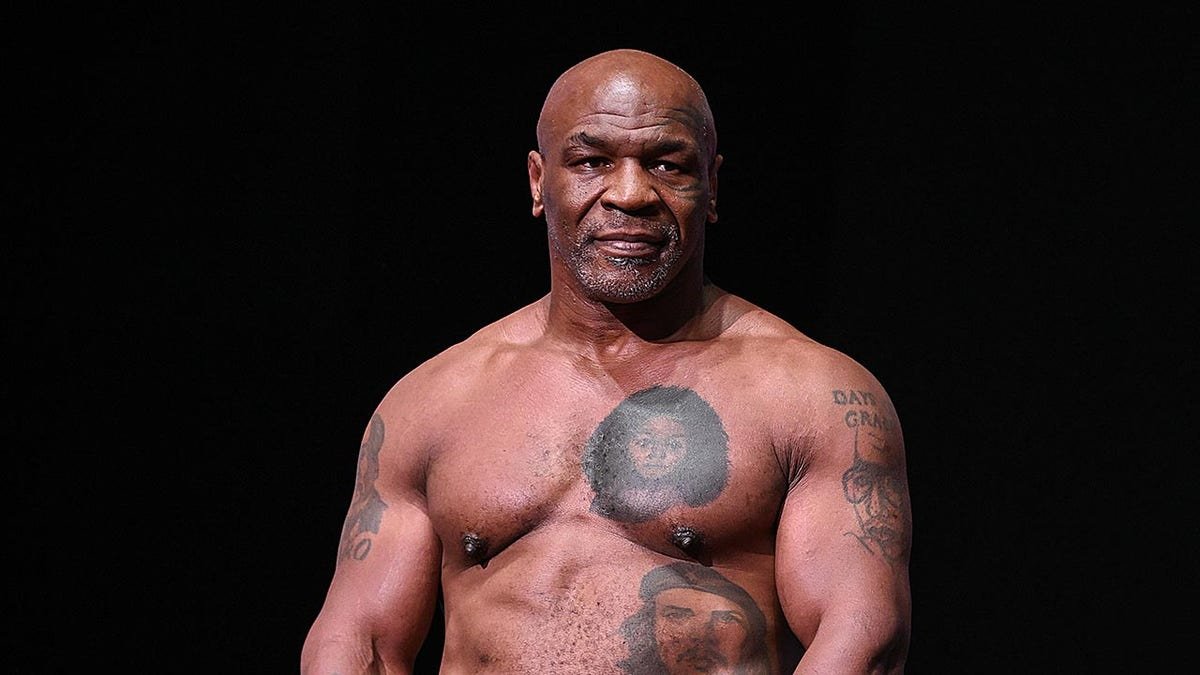Mike Tyson Opens Up About Fentanyl Use During Boxing Career
In a candid revelation on “The Katie Miller Podcast,” former heavyweight boxing champion Mike Tyson discussed his past use of fentanyl, a powerful opioid painkiller, during the late 1990s. Tyson, known for his controversial and often tumultuous career, shared that he used the drug to manage pain, particularly for a toe injury. This admission sheds light on the often-hidden struggles athletes face regarding pain management and substance use.
The Pain of a Champion
Tyson’s boxing career was marked by both extraordinary success and personal challenges. By the late 1990s, he was already a household name, having become the youngest heavyweight champion in history at just 20 years old. However, the physical toll of the sport began to manifest in various injuries, leading him to seek relief through medication.
“I took fentanyl quite a few times,” Tyson admitted. “It was a painkiller, and I used to use it to patch up my toe.” His experience with the drug was not just a casual encounter; he described the withdrawal symptoms as severe, likening them to those experienced by heroin users. “Once it wears off and you take the Band-Aid off, you start withdrawing, throwing up, just like if you were on heroin,” he explained.
The Legal and Ethical Dilemma
Tyson’s use of fentanyl raises important questions about the ethics of pain management in sports. The drug, classified as a narcotic, was relatively new at the time and not widely understood. Tyson recounted a conversation with a friend who introduced him to the drug, highlighting the lack of awareness surrounding its potential dangers. “It was illegal if it [was] caught in my bloodstream,” he noted, emphasizing the precarious position athletes often find themselves in when it comes to pain relief.
The issue of substance use in sports is not new. Athletes have historically turned to various substances to cope with the physical demands of their professions. The opioid crisis in the United States has further complicated this landscape, as many athletes have found themselves caught in a cycle of dependency on painkillers.
A Shift in Perspective: Advocating for Marijuana
Despite his past struggles with fentanyl, Tyson has emerged as a vocal advocate for the use of marijuana, particularly for athletes. He argues that cannabis should be viewed as a medicinal substance rather than a drug. “It’s not a drug. It’s medicine,” he stated emphatically. Tyson believes that marijuana can enhance performance and aid in recovery, a perspective that is gaining traction in the sports community.
In a previous interview, Tyson expressed regret over not using marijuana during his fighting days, suggesting that it could have improved his performance. “Athletes play better when they smoke,” he claimed, challenging the stigma that often surrounds cannabis use in sports.
The Push for Cannabis Reform
Tyson’s advocacy extends beyond personal use; he has taken an active role in lobbying for federal cannabis reform. In June, he joined a coalition of current and former athletes, including notable figures like Kevin Durant and Dez Bryant, to petition the White House for changes in cannabis legislation. Their letter called for the rescheduling of cannabis from Schedule I to Schedule III, which would recognize its medicinal benefits and reduce the legal penalties associated with its use.
Tyson expressed disappointment with the lack of progress on cannabis reform under previous administrations, particularly those of Barack Obama and Joe Biden. He remains hopeful that future leaders will take a more progressive stance on the issue. “I was let down by how they handled federal marijuana reform,” he said, indicating a desire for a more compassionate approach to drug policy.
The Broader Context of Substance Use in Sports
Tyson’s revelations come at a time when the conversation around substance use in sports is evolving. The National Football League (NFL) and other professional sports leagues are beginning to reconsider their policies on marijuana, recognizing its potential benefits for athletes. This shift reflects a growing understanding of the complexities surrounding pain management and mental health in sports.
The opioid crisis has prompted many to reevaluate the role of prescription painkillers in athletics. Athletes are increasingly speaking out about their experiences with addiction and the need for alternative treatments. Tyson’s story adds a personal dimension to this broader narrative, illustrating the challenges faced by those in high-pressure environments.
Conclusion: A Candid Reflection
Mike Tyson’s candid discussion about his past use of fentanyl and his advocacy for marijuana highlights the complexities of pain management in sports. As the conversation around substance use continues to evolve, Tyson’s experiences serve as a reminder of the challenges athletes face in balancing performance with health. His journey from a troubled past to a hopeful future in cannabis advocacy underscores the need for a more compassionate and informed approach to drug policy in sports. As Tyson himself noted, “It’s medicine,” and perhaps it’s time for society to recognize the potential benefits of cannabis for athletes and beyond.











